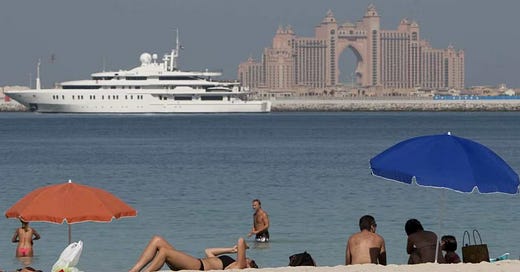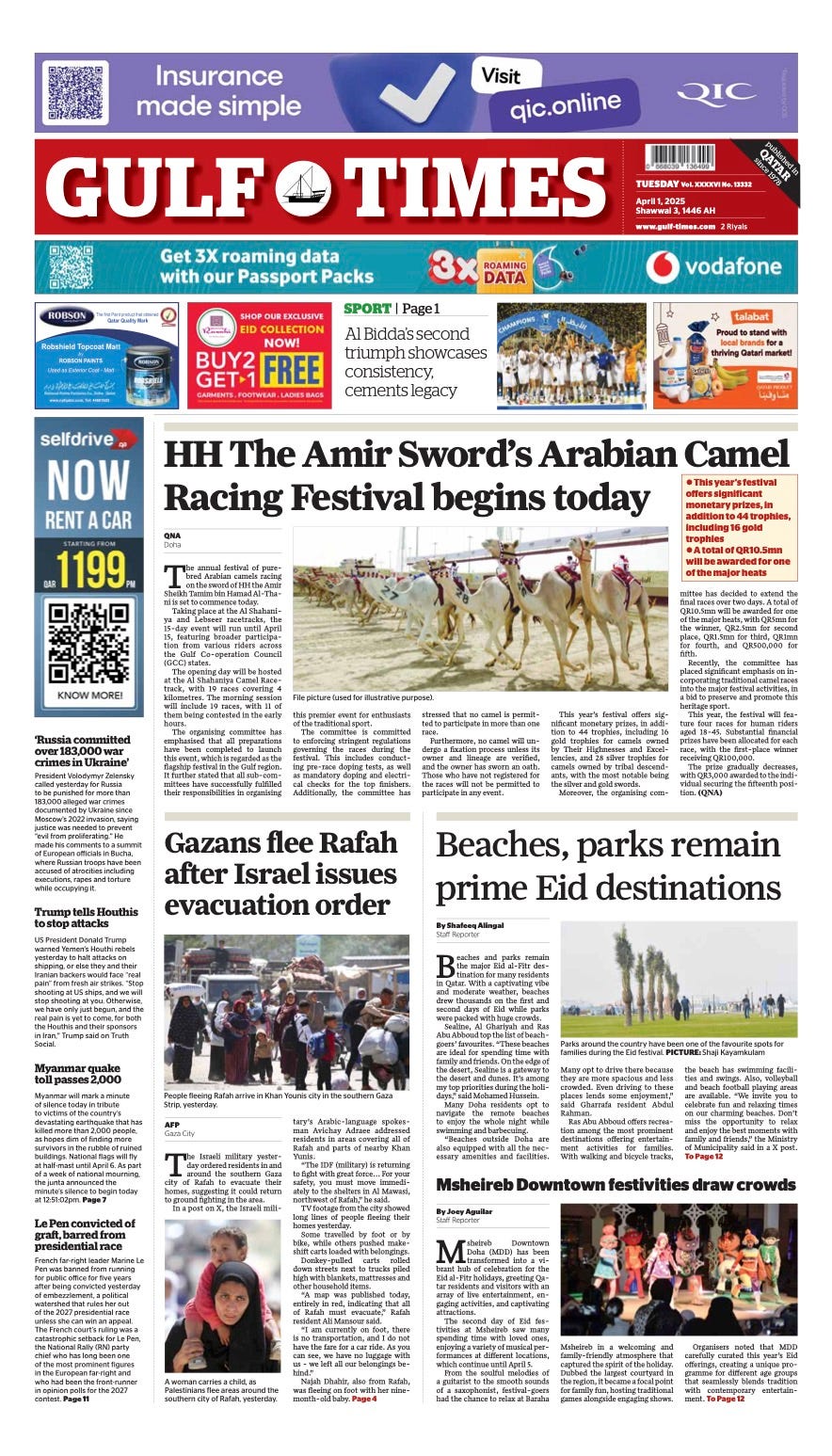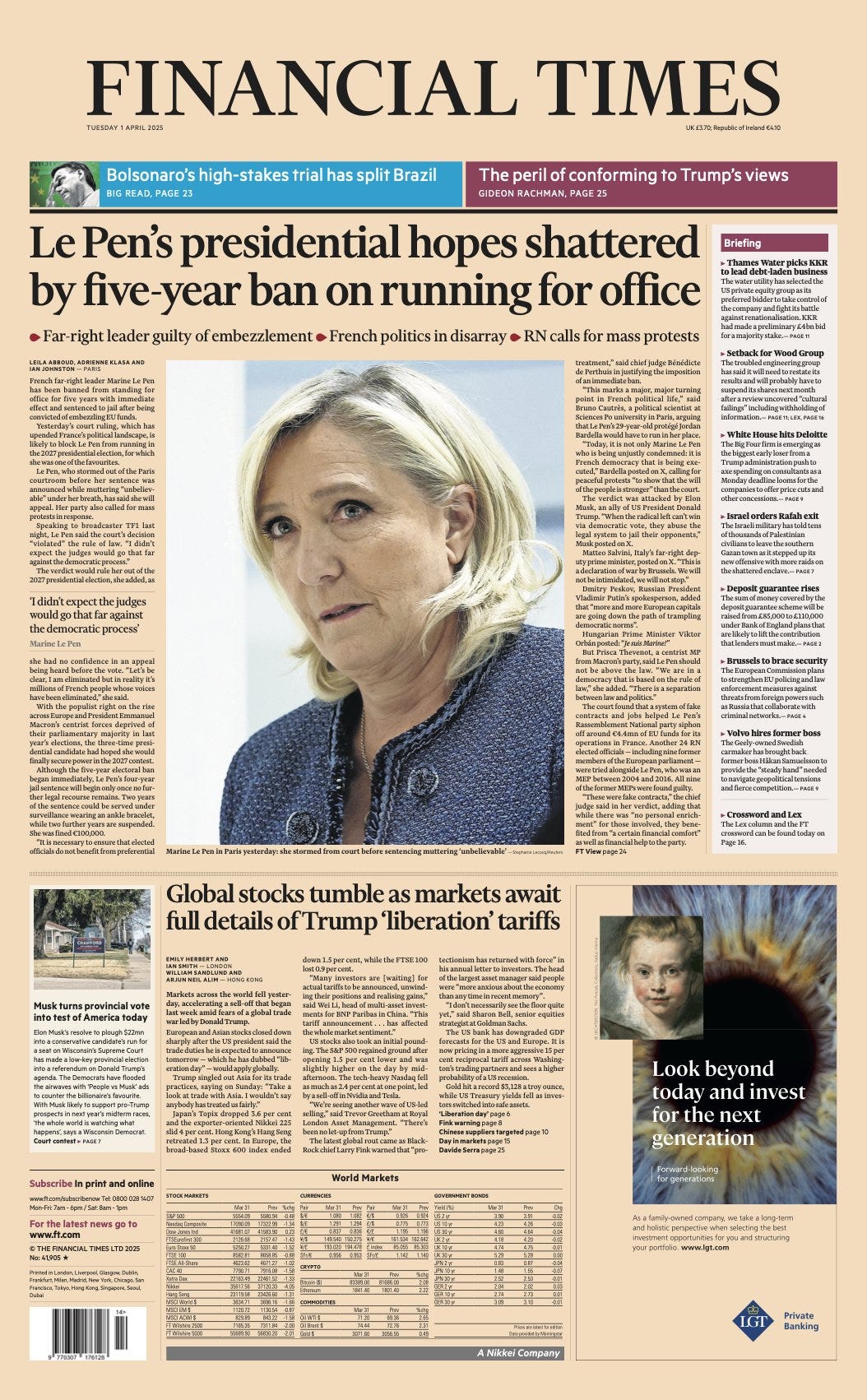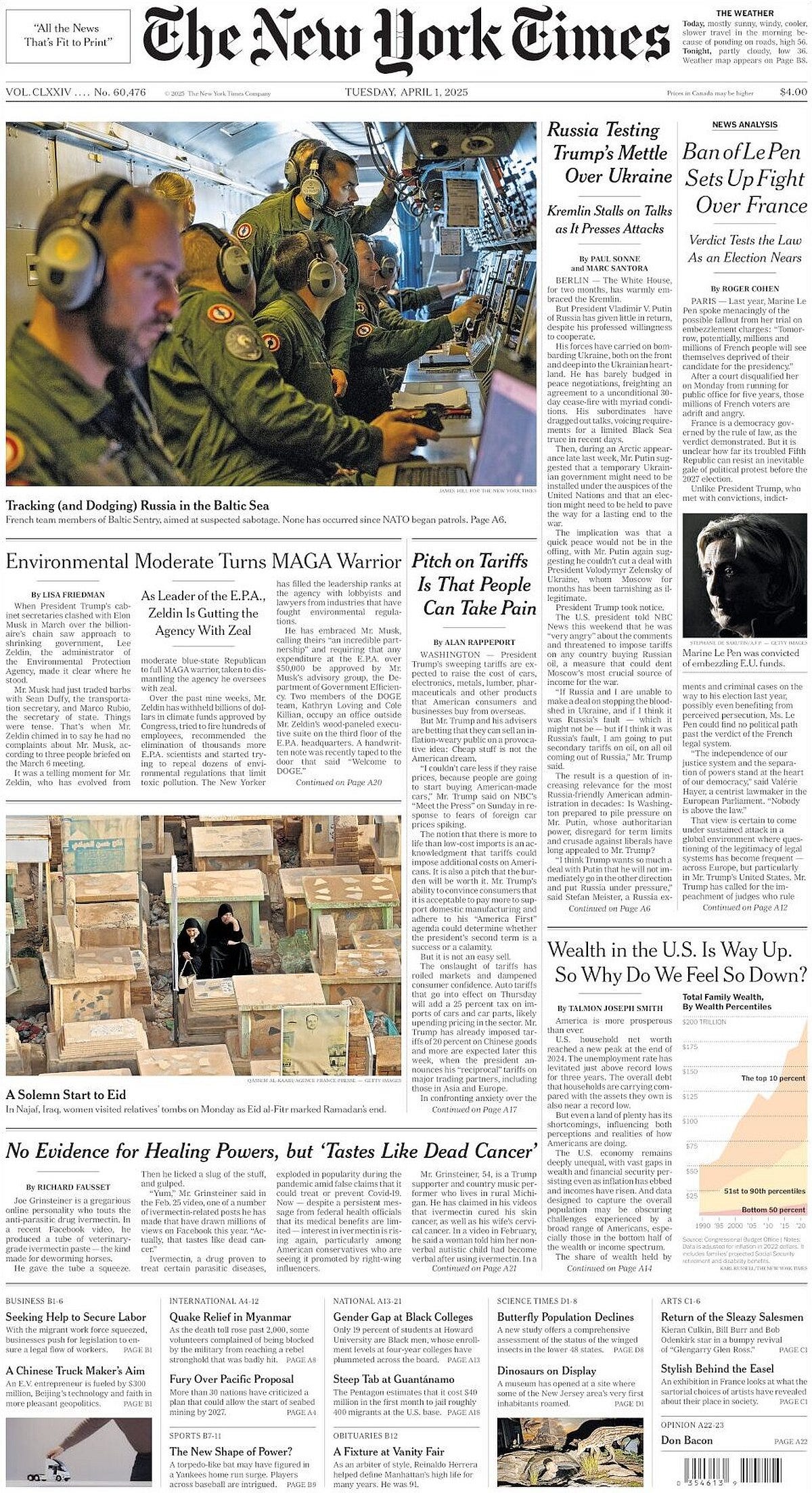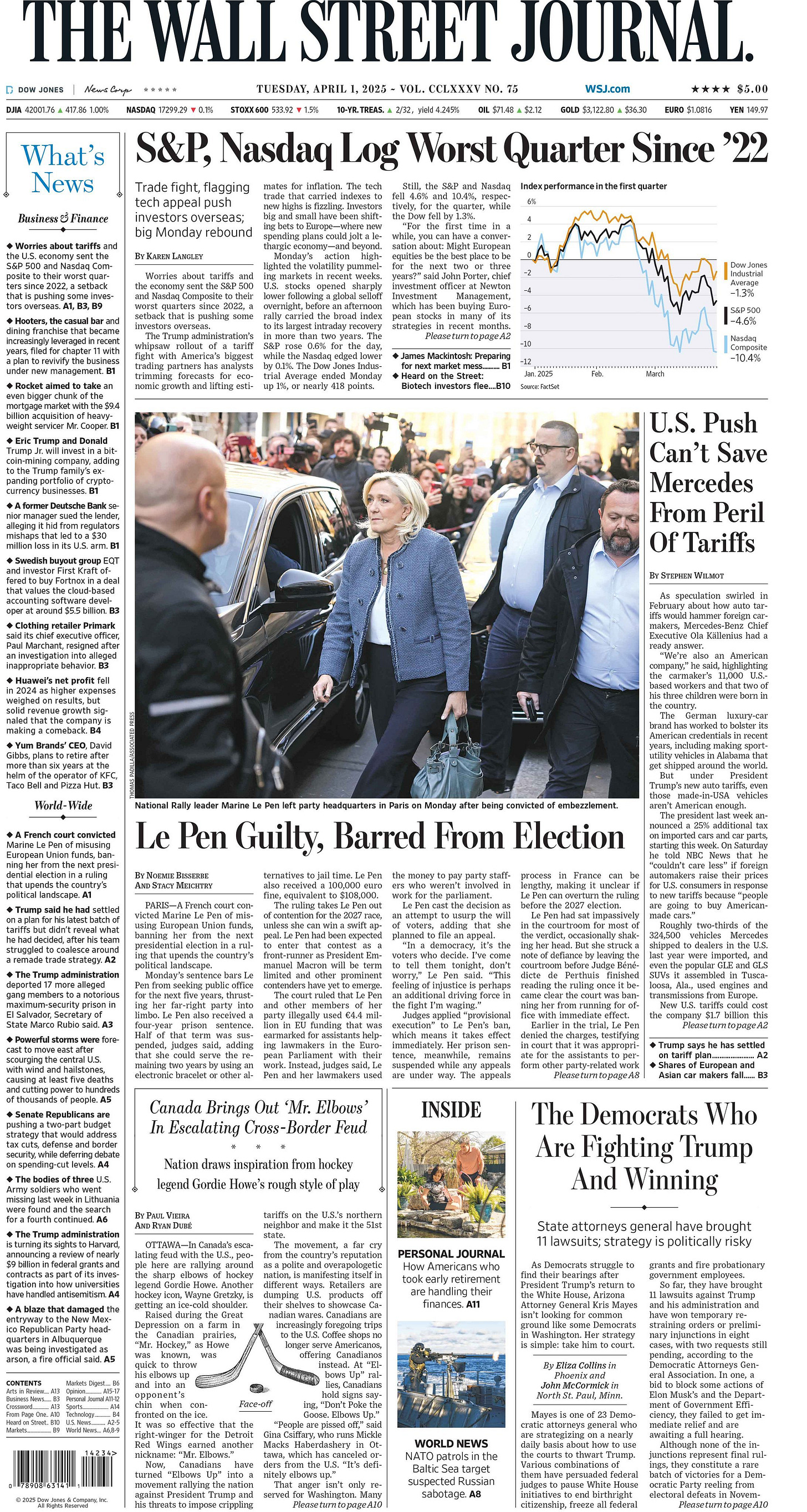Habibie, Come to Dubai!
The wealthy bubble in the desert is attracting huge amounts of Russian and Chinese wealth - and may soon host Donald Trump
After three days in Dubai, a few observations: it’s the Singapore of the Middle East—where rules are enforced and mostly followed. The Las Vegas of the East, minus the overt hedonism and gambling. The city is booming, with cranes dotting the skyline. In 2024, the UAE was expected to attract 6,700 millionaires. A massive airport expansion will span 70 square kilometres, feature 400 gates, and accommodate 260 million passengers annually. At Dh128 billion ($34.8 billion), it’s already the world’s most expensive airport and aims to replace Dubai International within a decade.
Prices are steep, but quality matches the cost. Many top restaurants and chefs deliver experiences on par with, or better than, their home cities. Not unlike Amman used to be in the day, this is one of the most affordable destinations to enjoy five-star luxury hotels.
Powering this metropolis is a vast foreign workforce, particularly from India, Pakistan, and the Philippines. Several Pakistani drivers told me they work seven days a week to make ends meet, living in crowded dormitories—yet remain grateful to be here amid growing unrest back home.
Despite its economic bubble, Dubai isn’t immune to global pressures. It reminds us of Singapore - a great place in a bad neighbourhood, close to hotspots Yemen and Iran. During our visit over Eid, hospitality workers noted a lack of the usual tourist surge. Concerns include Houthi conflict escalation, disrupted Red Sea shipping lanes, Donald Trump’s tariff war, and the region’s growing reliance on Buy Now, Pay Later (BNPL) plans. Even flagship airline, Emirates, now offers three interest-free payments on tickets. Critics warn BNPL fuels impulsive spending and debt, while fractional property investment is another rising trend.
Fuel remains among the world’s cheapest at Dh2.38 ($0.65) per litre for E-Plus 91. An extended journey on the skytrain will set you back a little over US$2. The cleanliness of the metro system - and most of the city - is on par with Singapore (minus the lush vegetation).
Since Russia’s invasion of Ukraine, thousands of Russians have settled in Dubai, leveraging its financial hub to buy property, launch businesses, or start fresh. While Emirati leaders remain neutral, they have condemned Russia’s actions and facilitated prisoner swaps between Kyiv and Moscow. Calling the UAE a safe haven for Russian business amid Western sanctions is almost an understatement. According to the Italian Institute for International Political Studies (ISPI), many Russian banks have moved funds here to avoid seizures and operate free from European restrictions. Russian investment in Dubai’s real estate market has surged, with $6.3 billion spent on property in 2022, making Russians the top non-resident buyers. This influx has also driven the relocation of oligarchs and wealthy citizens. Meanwhile, Emirati ports have welcomed luxury yachts and private jets belonging to sanctioned Russian elites. Chinese and Indian investment in the property sector is also surging, with the former contributing nearly US$5-billion in Dubai’s real estate market in 2024.
Can’t come to Dubai, habibie? Then watch the music video we created for you. Thanks to Gulf Air for the free sightseeing tour from the skies!
US President Donald Trump says the first overseas trip of his second term in office will probably include visits to Saudi Arabia, the UAE and Qatar. “It could be next month, maybe a little bit later,” Mr Trump said on Monday in the Oval Office. “And we're going to Qatar, also, and also we're going to possibly a couple of other countries. UAE is very important … so we'll probably stop at UAE and Qatar.” His remarks came after news outlet Axios reported that White House officials were planning Trump’s first trip to Saudi Arabia in mid-May as a signal of appreciation for its planned investment in US industry. Mr Trump noted that he visited Saudi Arabia during his first term as president after Saudi Arabia made $450 billion worth of investments in US companies. He said Riyadh had promised this time to more than double that amount with a pledge that amounts to nearly $1 trillion - The National
Aid groups arriving in the worst-hit areas of Myanmar said there was an urgent need for shelter, food and water after last week's devastating quake, while in Bangkok, rescuers pressed on searching for life under the rubble of a collapsed skyscraper. More than 2,700 people died (though the final figure is expected to be many times that number) in the 7.7 magnitude quake, which hit around lunchtime on Friday, and as aid teams made it into areas near the epicentre, it became clear to them that a massive humanitarian effort was required for those who survived. In Mandalay, a resident told Reuters that people were desperately trying to organise their own efforts to dig bodies out of rubble as there was not enough equipment or rescue teams, and locals were wary of aftershocks. "People went back inside the building in the daytime but still not dare to sleep at night," the resident said "People are still sleeping outside and started getting sick ... as the ground has been hit by sun the whole day and so it's hot." - Channel News Asia
A UN source said search and rescue teams can be deployed in Myanmar “at the request of the de factor government,” adding that they’ve “multiple options” as “multiple groups are controlling territory.” But getting huge surge capacity into the country is unlikely as the United Nations Disaster Assessment and Coordination (UNDAC), part of UN OCHA, did not get approval to enter, the source, who’s inside the country, said.
China sent its army, navy, air and rocket forces to surround Taiwan for drills Beijing said were aimed at practising a blockade of the self-ruled island. China insists democratic Taiwan is part of its territory and has threatened to use force to bring it under its control. Beijing has increased the deployment of fighter jets and naval vessels around Taiwan in recent years to press its claim of sovereignty, which Taipei rejects. Taiwan's defence ministry said Beijing had deployed its Shandong aircraft carrier group as part of 19 warships around the island. The exercises are aimed at sending a "stern warning and forceful deterrence" to alleged separatists in Taiwan, Beijing said. This week's drills are the biggest since February, when Taipei said that China staged a "live-fire" combat drill with aircraft and warships in an area about 40 nautical miles (74 kilometres) off the island's south. Taiwan's military responded by sending forces to "monitor, alert and respond appropriately” - France 24
French far-right leader Marine Le Pen on Monday slammed a "political decision" and insisted she had not abandoned hope of standing in presidential elections in 2027 after a court handed her a five-year ban on running for office in a political earthquake for France. The verdict – part of a conviction for creating fake jobs at the EU parliament on behalf of her National Rally (RN) party – stunned Le Pen as the judge ordered that the ban come into force with immediate effect. If it stands, this would mean she would be unable to launch a fourth campaign to capture the Élysée, where analysts believe she had her best ever chance of becoming president. In a febrile international climate, the verdict was condemned by the Kremlin, billionaire tycoon Elon Musk and hard-right European politicians ranging from Hungarian Prime Minister Viktor Orban to Geert Wilders of the Netherlands. Le Pen was also given a four-year prison term by the Paris court but will not go to jail, with two years of the term suspended and the other two to be served outside jail with an electronic tag. She was convicted over a scheme to take advantage of European Parliament expenses to employ assistants who were actually working for her far-right party in France. The court found that Le Pen had siphoned millions of euros in public funds while serving in the European Parliament, paying party staff with money intended for EU assistants - France 24
As the trade wars launched by U.S. President Donald Trump continue to escalate, all eyes are on Wednesday. Trump has repeatedly called April 2 “Liberation Day,” with promises to roll out a set of tariffs, or taxes on imports from other countries, that he says will free the U.S. from a reliance on foreign goods. To do this, Trump has said he’ll impose “reciprocal” tariffs to match the duties that other countries charge on U.S. products. But a lot remains unknown about how these levies will actually be implemented. White House press secretary Karoline Leavitt said Monday that Trump would unveil his plans to place reciprocal tariffs on nearly all American trading partners on Wednesday, but maintained that the details are up to the president to announce. Since taking office just months ago, Trump has proven to be aggressive with tariff threats, all while creating a sense of whiplash through on-again, off-again trade actions. And it’s possible that we’ll see more delays or confusion this week. Trump has argued that tariffs protect U.S. industries from unfair foreign competition, raise money for the federal government and provide leverage to demand concessions from other countries. But economists stress that broad tariffs at the rates suggested by Trump could backfire - AP
The Israeli military said early Tuesday that it had conducted a strike on the southern outskirts of Beirut, the second attack near Lebanon’s capital in less than a week. Israel and Hezbollah agreed to a cease-fire in November, raising hopes that Lebanon’s deadliest war in decades could be over. But the recent strikes have prompted fears that the truce could unravel. The Israeli military said the latest strike, in the Dahiya area in Beirut’s southern suburbs, had targeted a Hezbollah operative who had directed and assisted Hamas in planning a “significant and imminent” attack against Israel. Israel acted to eliminate the operative because he posed an “immediate threat,” the military said on social media. It added that the Dahiya area was a key stronghold for Hezbollah, a Lebanese militant group and political party backed by Iran - NYT
Georgian photographers who have covered months of protests in their capital, Tbilisi, say they are "deeply disturbed" at the awarding of a World Press Photo prize to a photographer working with the Russian state news agency TASS. Russian photojournalist Mikhail Tereshchenko captured protests that broke out in central Tbilisi in late 2024 after Georgia unexpectedly suspended talks on EU accession. His series of images capturing the fiery nighttime protests was named a winner in the European stories category of the 2024 World Press Photo awards. In an open letter posted to social media on March 30, Georgian photojournalists protested that TASS, a Kremlin-funded news outlet, represents precisely the political forces many Georgian protesters took to the streets to oppose. "Awarding a photographer aligned with the Kremlin's narrative for covering anti-Russian demonstrations is not only deeply contradictory but also a direct insult to those risking their lives to oppose Russian interference in Georgia's sovereignty and future," the photographers said. The World Press Photo (WPP) Foundation has responded to complaints over the prize by pointing out the photos were presented to their jury anonymously and therefore judged on visual and journalistic merit alone. "We do not exclude photographers from any country," the WPP statement read.
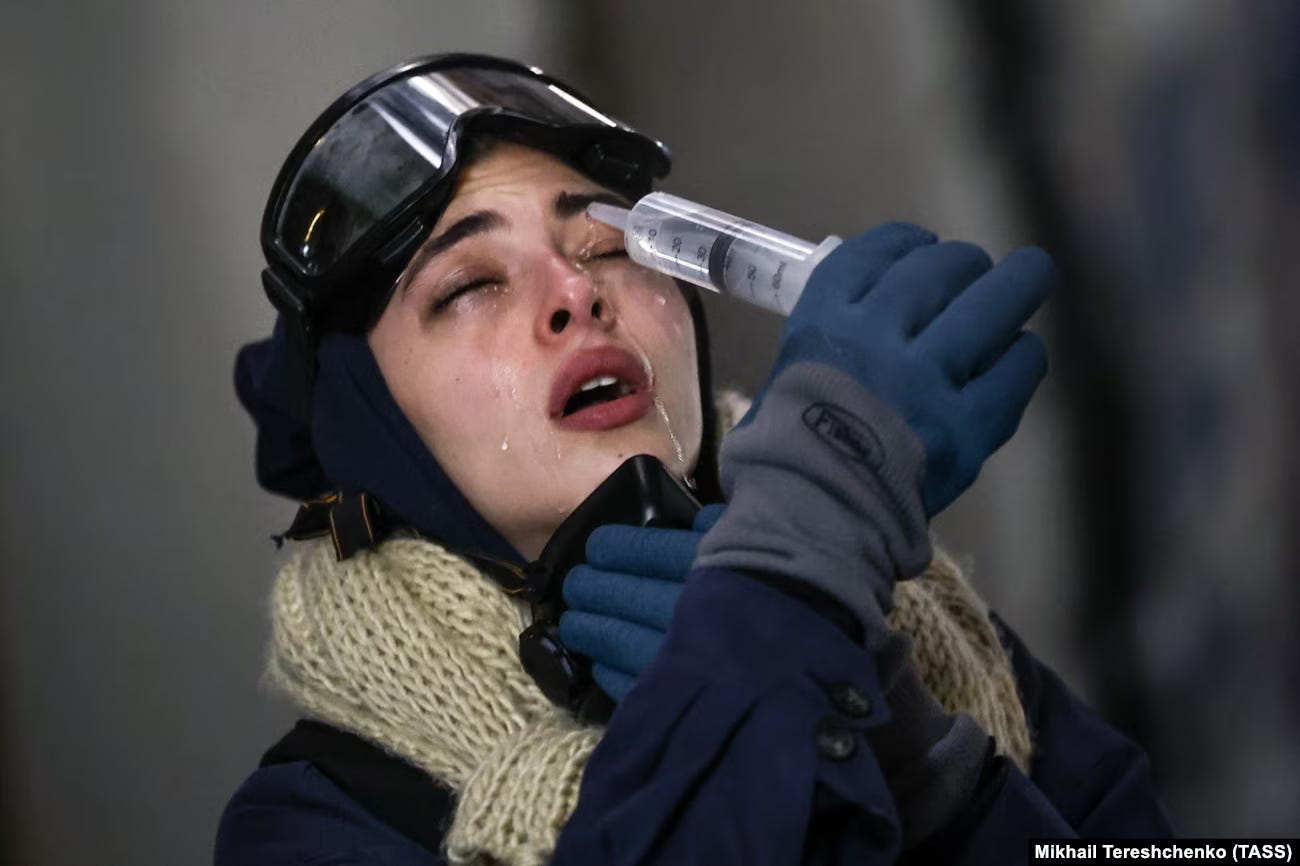
Canadians' desire to visit the U.S. is absolutely tanking. Advance bookings for Canada-U.S. flights between April and September are down over 70% compared to this time last year, according to aviation data firm OAG. Airlines are reducing transborder capacity — a strong signal that they, too, are seeing (or at least predicting) less demand. A mere 10% drop in Canadian visitors could cost U.S. businesses as much as $2.1 billion in revenue, according to travel news site The Points Guy. Reluctance to visit the U.S. this summer may not be a strictly Canadian phenomenon. Travel message boards and chat groups have lit up recently with worries about being detained upon entering the U.S. - Axios

